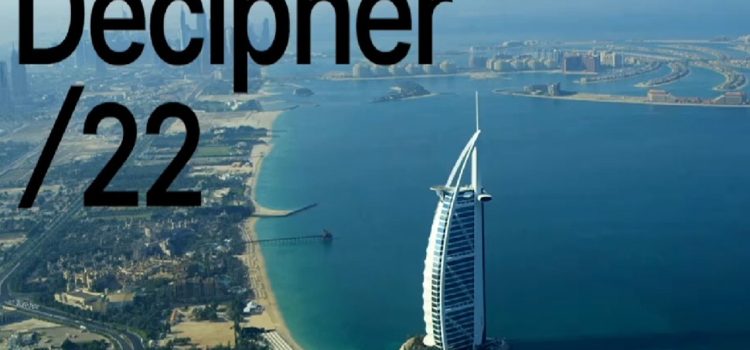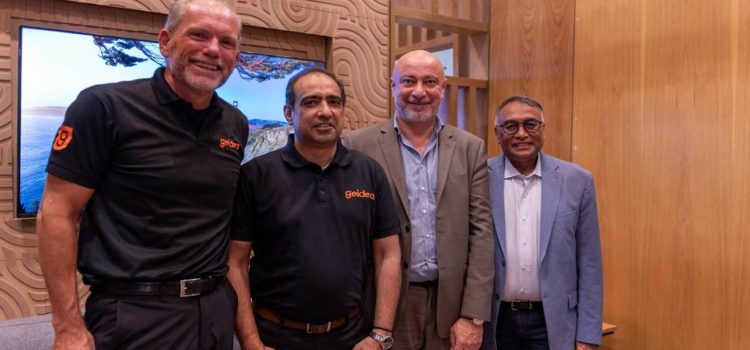WadzPay, blockchain payments provider operating in the UAE, has teamed up with DIFC (Dubai International Financial Centre) Fintech Hive and Emirates NBD accelerator program, to offer payment features in the metaverse. This is a huge undertaking given that the metaverse economy is predicated to hit $13 trillion by 2030.
Moreover this is especially significant in the UAE given that Dubai announced its metaverse strategy in July 2022. As per the strategy Dubai wants to attract 5000 blockchain and metaverse companies to the city by 2027. DIFC has been working through its regulatory arm DFSA to ensure the proper regulatory environment for crypto tokens, security tokens, and is considered by VARA as one of the entities that can house regulated companies in this sphere.
Raja Al Mazrouei, Executive VP of DIFC Fintech Hive was quoted saying, “The 10-week global accelerator programme for metaverse start-ups reaffirms our commitment to support Dubai’s ambition to be among the top 10 metaverse economies in the world.”
We all know that for the metaverse to be successful, payment services in the metaverse will not only have to be seamless but extremely secure as well as compliant. Each metaverse will have to have a robust payment method or it won’t be a fully functional experience.
Noteworthy as well is that Emirates NBD has stated that it intends to build up its 3D capabilities, creating virtual worlds to augment the customer experience and enabling a decentralised payment infrastructure for customers to create, monetise, buy and sell digital assets and services.
Now let’s put it all together, Dubai wants to be a metaverse hub; the UAE has already piloted a CBDC project not only with Saudi Arabia but also other central banks with the wholesale CBDC project Mbridge which is in partnership with BIS and Hong Kong Monetary Authority, Thailand and Central Bank of China. The Mbridge pilot has already commenced with commercial banks in 2022.
So far 105 countries across the globe are exploring CBDCs, with only 9 percent of countries having actually launched a CBDC.
For those not familiar with WadzPay, it is an interoperable and agnostic blockchain payments ecosystem that was founded in Singapore in 2018 but is currently operating across Asia and the Middle East with offices in UAE. As per their website, the company has been working with large payment companies, banks, on CBDC rollouts and digital assets transactions and settlements.
So when Anish Jain Founder & Group Chief Executive Officer of WadzPay announced on LinkedIn, that the company is working with DIFC Fintech hub and Emirates NBD accelerator program to enable financial services in the metaverse, it was newsworthy.
LaraontheBlock, asked Jain what this meant and how they were working with DIFC, his reply, “WadzPay established its presence in UAE in 2020 with its DIFC entity. The DIFC FinTech hive provided tools to grow our business. It is also the breeding ground for innovation. WadzPay Chain is purpose built for payments and is metaverse ready. Together with the WadzPay payments ecosystem it will provide users with optionality, agility and access into the metaverse while making traditional payments efficient.”
In conclusion, maybe we will be witnessing the first complete financial service and payment offering in a metaverse experience within the UAE sooner than we think. A digital wallet that would or could hold CBDC, stablecoins, crypto that users in the metaverse could utilize for the purchase of digital assets or representations of physical assets as NFTs securely and compliantly.
We will know which start-ups have been chosen to implement these projects with Emirates NBD as they will be announced during Gitex2022.
In the end it is only when you can garner valued economic activity in the metaverse will the metaverse actually have any sort of true utility.
On the side-lines, it was also interesting to see that WadzPay had signed a strategic partnership with FIGA an enterprise in the Republic of Congo to tokenize the rights of reserves of potash, phosphate and iron which will be extracted over the next 25 years. WadzPay is expected to tokenize $4 billion worth of assets for foreign direct investment.
WadzPay also partnered with Algorand Blockchain where it will utilize Algorand platform in multiple proof of concept-stage projects including Asia and Africa-based CBDC launches.











